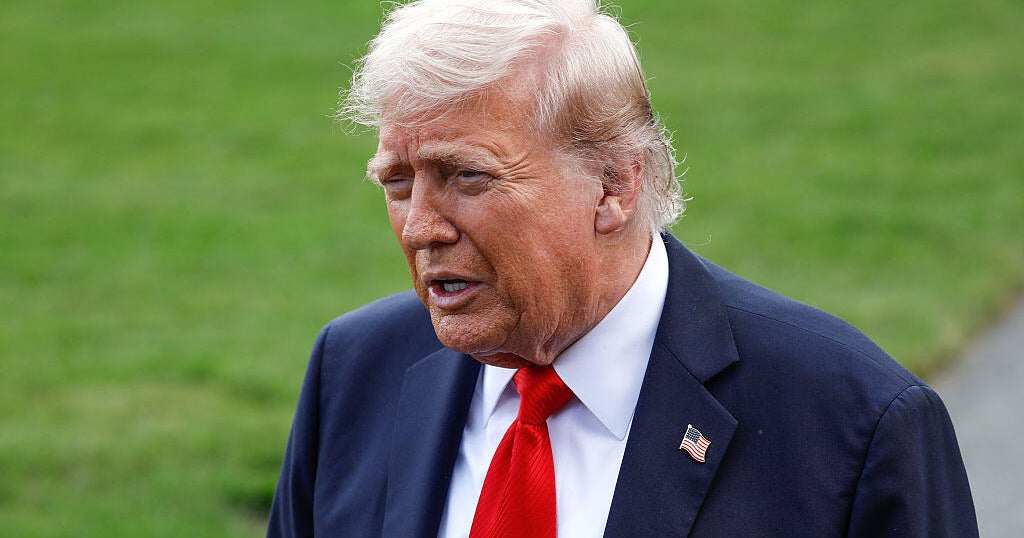A federal judge strenuously asserted that the Trump administration may be circumventing its legal responsibilities to protect individuals from persecution and torture. This concern emerged following an incident where a group of African migrants were deported to Ghana, and some of these individuals were then set to be repatriated to their home countries. The migrants, originally from nations like Gambia and Nigeria, now find themselves in a precarious situation, possibly facing grave dangers upon their forced return.
The judge presiding over the matter, U.S. District Court Judge Tanya Chutkan, demanded a detailed account from the U.S. government. She sought clarification on how the administration plans to ensure that these deported individuals are not being sent back to environments where they are at risk of persecution or torture. This demanded explanation was to be provided by 9 p.m. EST on a Saturday, demonstrating the urgency of the situation.
The controversy began earlier in the month when the U.S. executed a deportation order that sent over a dozen non-Ghanaian nationals to Ghana. This maneuver slotted Ghana into the list of nations accepting third-country deportations, an initiative driven by the Trump administration. The Ghanaian government officially confirmed the acceptance of these deportations.
The deportees’ ordeal paints a grim picture of their current conditions in Ghana. Attorneys have brought a lawsuit to the fore, claiming that these individuals have been interned in abysmal conditions. Descriptions of the detention facility paint a rather draconian image—an open-air site, teeming with armed military guards, where basic human dignity appears to be in short supply.
During a court hearing, Lee Gelernt, an attorney from the American Civil Liberties Union, raised alarming details about the imminent dangers facing the detainees. He discussed specific cases, including that of a bisexual man from Gambia, who, in a dire turn of events, had already been deported to his home country—a country from which he initially fled to escape persecution. In these instances, despite clear directives from U.S. immigration judges that outright prohibit their deportation to their countries of origin due to the risks of persecution and torture, the threats remain potent and real.
The legal framework that ought to safeguard these individuals is robust, rooted in the United Nations Convention Against Torture and certain provisions of U.S. immigration law that stipulate the withholding of removal. While these provisions prevent the U.S. from sending foreigners to countries where they would face torture or persecution, they paradoxically permit deportations to third-party countries.
In response to the unfolding situation, a Justice Department lawyer representing the U.S. government acknowledged that Ghana intends to deport these individuals back to their native countries. This admission, however, came with a caveat—the U.S., according to the lawyer, lacked any leverage to influence Ghana’s actions at this juncture. This hands-off stance drew sharp criticism from Judge Chutkan, who labeled this approach as disingenuous. She fervently queried whether the U.S. was aware that such a scenario might unfold, suggesting the situation resembled an ‘end-run’ around legal protocols designed to protect the vulnerable.
Interestingly, Judge Chutkan postulated that the U.S. holds the capability to either retrieve these migrants and bring them back to American soil or reposition them to a sanctuary that guarantees their safety. Alternatively, she proposed, the U.S. could firmly inform Ghana that it was breaching its diplomatic agreement by not upholding the safety of these deportees.
Amidst this legal and moral quagmire, official statements from the Department of Homeland Security came to light. A spokesperson insisted that the deportations did not breach U.S. immigration law, referencing a Supreme Court order that lifted restrictions on third-country removals. This statement also highlighted that all deported individuals had been subjected to due process and cited their severe criminal backgrounds as justification for their removal.
The debate underscored a broader strategy by the Trump administration to negotiate with foreign governments globally to accept deportees who did not originate from their territories. This expansive deportation strategy has seen agreements being brokered with countries far and wide, such as El Salvador, Kosovo, and South Sudan, demonstrating the administration’s determined approach to immigration enforcement.
In sum, the legal battles, harrowing tales of human suffering, and intricate intergovernmental dynamics sketch a complex portrait of immigration policy and its human consequences. This situation not only tests the legal boundaries set by international human rights norms but also probes the ethical responsibility of nations in handling the most vulnerable populations at the crossroads of global migration.









